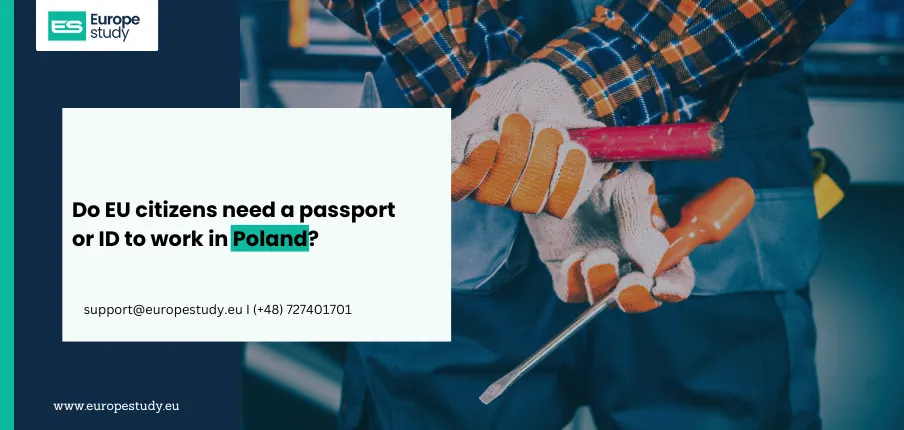
Do EU citizens need a passport or ID to work in Poland?
Introduction
Poland has become a popular destination for European Union (EU) citizens seeking job opportunities, thanks to its growing economy, relatively low cost of living, and high demand for skilled and unskilled labor. If you're an EU citizen considering working in Poland, one of your first questions is likely: Do I need a passport or will a national ID card be enough?
This post explains the legal requirements for EU citizens working in Poland, including which documents you need to enter the country, start employment, and register your stay.
1. Can EU Citizens Work in Poland Without a Visa?
Yes. If you are a citizen of an EU member state, you have the right to live and work in Poland without a visa. This is a fundamental right under the EU’s principle of free movement of persons. You do not need a work permit or visa to be employed by a Polish company.
However, you must have a valid travel document to enter and stay in Poland, and you’ll need to register your residence if you stay longer than 90 days.
2. Passport vs. ID Card: What’s Required?
As an EU citizen, you can enter Poland with either of the following:
- A valid passport
- A national identity card (ID) issued by your home country
Both documents are equally acceptable for crossing borders within the EU and for proving your identity in Poland.
You are not legally required to carry a passport if you have a valid national ID card. For example, German, French, Italian, or Spanish citizens can use their national ID cards for travel and legal procedures in Poland.
3. Starting Work in Poland: Which Document is Used?
When starting a job in Poland, your employer will need a copy of your identity document for:
- Verifying your identity and EU citizenship
- Registering your employment for tax and social security purposes
In most cases, employers accept either a passport or an ID card. Make sure your document is valid and not expired.
Some companies may request additional documents, such as:
- PESEL number (Polish national identification number, optional but useful)
- EU registration certificate (if staying longer than 90 days)
- Proof of residence address in Poland
4. Registering Your Stay: Required After 90 Days
If you plan to live and work in Poland for more than 90 days, you are required to register your stay with the local Voivodeship Office (Urząd Wojewódzki). This process is called:
- "Registration of stay of an EU citizen" (Rejestracja pobytu obywatela UE)
To register, you’ll need to submit:
- A valid passport or ID card
- Proof of employment (e.g. job contract)
- Proof of health insurance
- Proof of address in Poland (rental contract or housing confirmation)
After registration, you will receive a certificate of registration, which is a document confirming your legal residence in Poland as an EU citizen.
5. Other Tips and Considerations
- Keep your ID/passport valid: If your document is close to expiring, consider renewing it before moving.
- Carry ID at all times: While not legally required, it's advisable to carry your ID in Poland in case of police checks or administrative matters.
- Bank accounts and rentals: Some banks or landlords may prefer a passport over an ID card. Having both can be helpful.
Conclusion
In summary, EU citizens do not need a passport specifically to work in Poland—a valid national ID card is sufficient for entering the country, starting employment, and registering your stay. That said, make sure your documents are valid and that you comply with the requirement to register your stay if working for more than 90 days.
Poland remains a welcoming destination for EU nationals, and the administrative process is relatively straightforward. With the right documents in hand, you can start your career in Poland without unnecessary delays.





